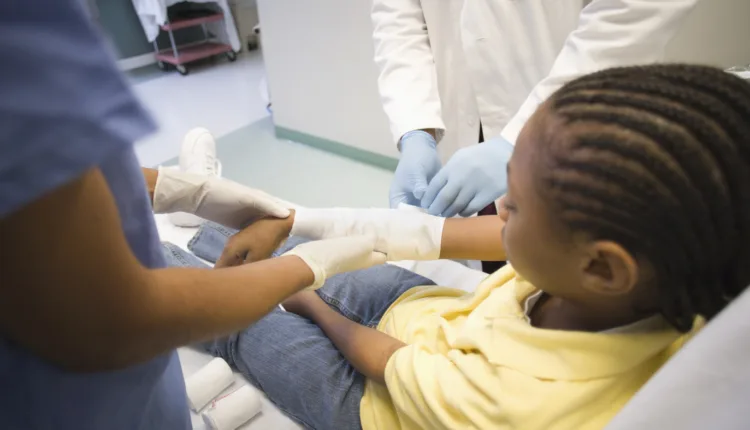
Researchers Discover Widespread Health Disparities in Children’s Medicine
TL/DR –
A study published in The Lancet Child and Adolescent Health has found that non-white children in the US receive inferior pediatric care, with the situation being worst in pain management. The review was conducted by Dr. Nia Heard-Garris of Northwestern University who found that children of color were less likely to get diagnostic imaging, more likely to experience complications during and after surgical procedures, had longer wait times in the Emergency Room and were less likely to be diagnosed and treated for a developmental disability. The causes have been attributed to structural racism which includes unequal access to healthcare, bias among health care providers, and disparate policing of non-white children.
Disparities in Pediatric Care for Non-White Children in the U.S.
A research investigation published in The Lancet Child and Adolescent Health reveals widespread disparities in pediatric care for non-white children. The study indicates that children of color are more likely to receive subpar medical care compared to their white counterparts, even when they have health insurance. This emphasizes the urgent need for innovative policy recommendations to counter these disparities.
Whether it’s delayed diagnosis or treatment of developmental disabilities, or inadequate pain management for severe conditions, the health inequities are systemic and prevalent across different medical specialties. The research highlights the importance of tackling structural racism and unconscious bias in healthcare for a more equitable future.
The Impact of Structural Racism on Healthcare
The study notes that structural racism, including unequal access to quality housing and economic opportunities as well as disparate policing of children of color, is the root cause of these disparities. It urges healthcare providers to examine their practices for potential biases and encourages sweeping policy changes for a more balanced healthcare system.
Immediate actions suggested include implementing continuous eligibility for social safety-net programs like SNAP, Medicaid, and CHIP at the state level. This would ensure children don’t lose vital health insurance coverage and food assistance due to administrative issues.
While broader policy changes like the implementation of universal healthcare might take time and face political challenges, the study stresses the importance of taking immediate steps at an individual level. Healthcare providers are encouraged to challenge their potential biases, learn more, and consistently review their practices for improvement.
—
Read More Health & Wellness News ; US News
